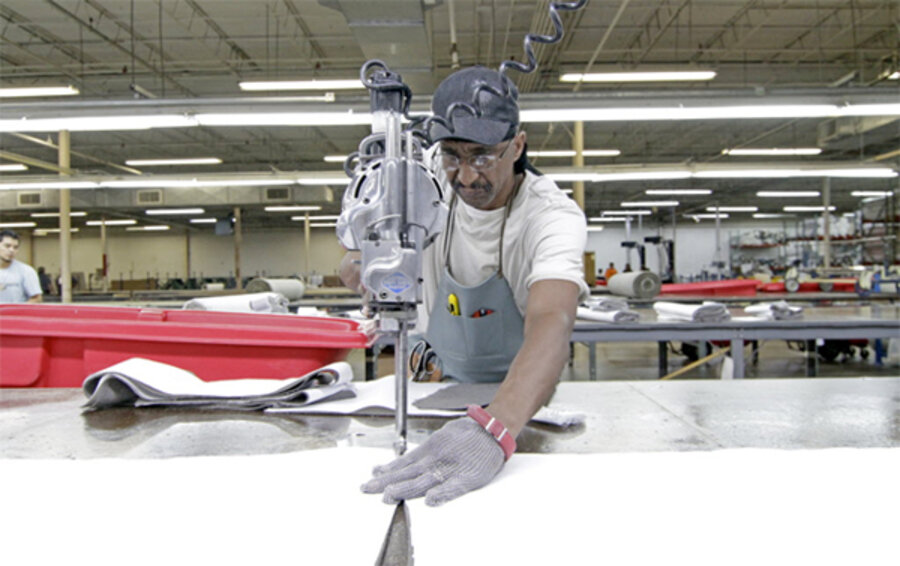By Jina Moore/Correspondent
There's a new hot word in the business world, and it packs a surprising punch: "reshoring." It's meant to single out an economic reversal: Manufacturing jobs that companies were once more than happy to ship overseas are coming home.
The idea has been a hit in the media – who wouldn't hope a factory coming back home isn't just a local story? – but, analysts say, this isn't just a momentary trend.
"I think it's a real thing," says Chad Moutray, chief economist at the National Association of Manufacturers in Washington, D.C. "There's certainly some hype to it. But when I talk to a lot of manufacturers, many of them actually say that they have moved some production back."
There's no official tally of the number of jobs returning, but Harry Moser, director of the Reshoring Initiative, which aims to bring manufacturing jobs back to the United States, estimates that 50,000 jobs have returned in the past three years. He bases his estimate on a close read of the media and on reports his organization receives. If that number is accurate, reshoring would account for 12 percent of the manufacturing jobs the Bureau of Labor Statistics reports returned to the American economy since 2010.
Part of the trouble with the number, Mr. Moser says, is that many reshored jobs "don't get much attention. There's no groundbreaking, no governor with a golden shovel, no flag," he says. "It's just an order. The foundry has 10 percent more business, so they hire three more people. There's no news in that, but when you add all that up you get to, we think, conservatively, 50,000 jobs."
Rising wages in China, unpredictable supply-chain problems, oil prices, and the risk of intellectual property theft are making manufacturers more wary of producing overseas, analysts say.
It's not just that it's getting more expensive to produce overseas. It's also getting cheaper to produce back at home. "It's the shale gas revolution," says Kevin Swift, chief economist and managing director of the American Chemistry Council. "There are low-cost, abundant sources of energy [here] now."
Mr. Swift says that's a game changer for his industry: "We were being written off as being noncompetitive. It's completely changed. There's significant investment on the books ... 50 [planned] projects valued at over $40 billion."
The Boston Consulting Group, a global management consulting firm, in a September report projected that returned manufacturing could bring 5 million new jobs by 2020 and add $90 billion in US exports to the economy.







